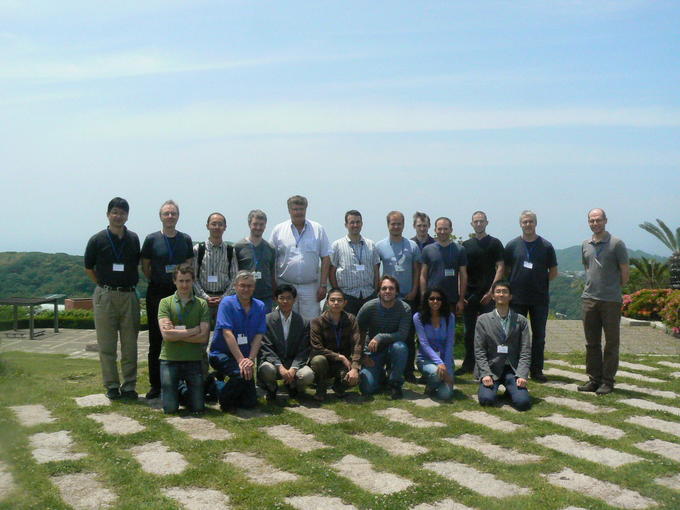NO.056 Staging and high-performance computing: theory and practice
May 27 - 30, 2014 (Check-in: May 26, 2014 )
Organizers
- Oleg Kiselyov
- Monterey, CA, USA
- Jeremy Siek
- Indiana University, USA
- Yukiyoshi Kameyama
- University of Tsukuba, Japan

Overview
We propose the follow-up to the meeting “Bridging the theory of staged programming languages and the practice of high-performance computing” (Shonan Seminar 19), which took place in May 2012. In the first meeting, researchers in staged programming languages were learning of the problems in high-performance computing (HPC) from HPC experts. Since then, thanks in part to Shonan Challenges put forward at that meeting, the theory and tools of staged programming languages have progressed to the point where they could already be useful in HPC practice. The proposed follow-up meeting will gauge this readiness and set further milestones.
It will be a forum for staged programming researchers to present their progress and for HPC practitioners to evaluate it, fostering the collaboration on real-life applications.
Generative programming, in particular, in the form of staging, is widely recognized in HPC as the leading approach to resolve the conflict between high-performance on one hand, and portability and maintainability on the other hand. In its general form, staging is an implementation technique for efficient domain-specific languages (DSL), letting HPC experts conveniently express their domain-specific knowledge and optimization heuristics. However, the results and tools of the current staging research are little used in the HPC community. Partly this is because HPC practitioners are not aware of the progress in staging; staging researchers are likewise unaware of what HPC practitioners really need. The first Shonan meeting brought together HPC practitioners and programming language (PL) researchers to break this awareness barrier. The meeting aimed to solicit and discuss real-world applications of assured code generation in HPC that would drive PL research in meta-programming.
The first Shonan meeting succeeded in its aim. It developed a set of benchmarks, representative HPC examples, where staging could be of help in producing more maintainable code and letting domain experts perform modifications at a higher-level of abstraction. This set was dubbed ‘Shonan Challenge’.
Shonan Challenge has greatly stimulated research and development of staging, resulting in extensible compilers based on staging (Rompf et al., POPL 2013) and the revival of MetaOCaml (ML 2013). The answers to Shonan Challenges have been presented in the overview paper (Aktemur et el., PEPM 2013), in (Rompf et al., POPL 2013) and in a poster at APLAS 2012. Shonan Challenge problems (specifically, the Hidden-Markov
Model benchmark) were discussed at the staging tutorials given in 2013 at the premier PL conferences PLDI, ECOOP, and ICFP/CUFP.
It is time to report the progress in staging back to the HPC practitioners who posed the challenges, to evaluate how well the developed tools meet the needs of the HPC practice already, and what is yet to be done.
As before, we anticipate the workshop participants to consist of three groups of people: PL theorists, HPC researchers, and PL-HPC intermediaries (that is, people who are working with HPC professionals, translating insights from PL theory to HPC practice). To promote the mutual understanding, we plan for the workshop to have lots of time for discussion. We will emphasize tutorial, brainstorming and working-group sessions rather than mere conference-like presentations.
